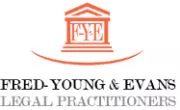The then Acting President of Nigeria, Prof. Yemi Osinbajo signed the Voluntary Assets and Income Declaration Scheme, Executive Order No. 004 of 2017 ("the Scheme Order") on 29th June 2017 and gave a directive that the Scheme be set up and managed by the Federal Ministry of Finance.
- What is the Purpose of the
Scheme?
The Scheme is a tax amnesty offering taxpayers limited opportunity to regularize their tax status for outstanding taxes. If tax payers disclose honestly undisclosed assets and income, the tax authority shall waive overdue interest, penalties, tax investigations or criminal prosecution for unpaid tax. - Who is the Scheme applicable
to?
The Scheme is applicable to all taxable persons including Nigerian residents and non-residents, executors registered companies and statutory companies. In order to qualify for the Scheme, taxpayers must disclose taxes due from sources within and outside Nigeria which were not reported or accurately reported in the preceding 6 years. - What is the period of the
Scheme?
The Scheme is expected to last for 9 month from 1st July 2017- 31st March 2018. - What is the Legal Framework
for the Scheme?
The Scheme is voluntary and does not compel taxpayers to declare their assets or income. It does not waive back duty taxes but gives taxpayers an opportunity to make good tax owed with the leverage to spread payments over 3 years without penalty.
The Scheme Order is the legal basis of the Scheme. The Federal Inland Revenue Service and the State Boards of Internal Revenue will sign a Memorandum of Understanding for the operation of the Scheme at the Federal and State level. - Which taxes will the Scheme
cover?
The Scheme will cover Federal and State taxes, Companies Income Tax, Personal Income Tax, Capital Gains Tax, Petroleum Profit Tax, Value Added Tax, Stamp Duties, Tertiary Education tax and National Information Technology Development Agency ("NITDA") levy. - What is the consequence of
failure to honestly take advantage of the Scheme?
The taxpayer will pay the tax liability in full; liability to pay interest and penalties arising from tax, liability to face prosecution, withdrawal of reliefs which may have been granted to tax payer and liability to undergo comprehensive audit. - How can taxpayers participate
in the Scheme?
Taxpayers who intend to participate in the Scheme must submit a Declaration Form to the relevant tax authorities. All taxes paid under the Scheme are to be made to the tax authorities quoting the tax payers full name and Tax Identification Number (TIN). - What documents are required
for the Scheme?
The taxpayer shall complete Form VA1 for individuals and VA2 for corporate entities. The taxpayers shall require previous tax returns, tax clearance certificates, relevant business records including income statements, management accounts, financial statements and bank statements, dividends counterfoils, dividend distributions or other investment statements. - What are the other incentives
for participation in the Scheme?
Taxpayers who make declarations before 1st January 2018 will get exemption from both interest and penalties.
The content of this article is intended to provide a general guide to the subject matter. Specialist advice should be sought about your specific circumstances.

